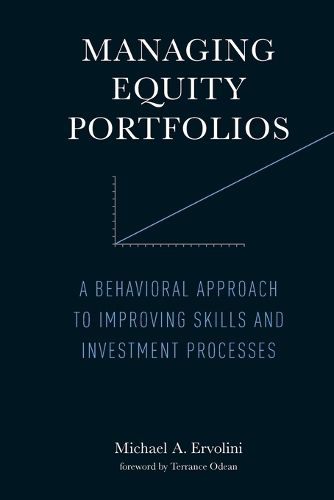Readings Newsletter
Become a Readings Member to make your shopping experience even easier.
Sign in or sign up for free!
You’re not far away from qualifying for FREE standard shipping within Australia
You’ve qualified for FREE standard shipping within Australia
The cart is loading…






A groundbreaking framework for improving portfolio performance that goes beyond traditional analytics, offering new ways to understand investment skills, process, and behaviors.
A groundbreaking framework for improving portfolio performance that goes beyond traditional analytics, offering new ways to understand investment skills, process, and behaviors.
Portfolio management is a tough business. Each day, managers face the challenges of an ever-changing and unforgiving market, where strategies and processes that worked yesterday may not work today, or tomorrow. The usual advice for improving portfolio performance-refining your strategy, staying within your style, doing better research, trading more efficiently-is important, but doesn't seem to affect outcomes sufficiently. This book, by an experienced advisor to institutional money managers, goes beyond conventional thinking to offer a new analytic framework that enables investors to improve their performance confidently, deliberately, and simply, by applying the principles of behavioral finance.
W. Edwards Deming observed that you can't improve what you don't measure. Active portfolio management lacks methods for measuring key inputs to management success like skills, process, and behavioral tendencies. Michael Ervolini offers a conceptually straightforward and well-tested framework that does just that, with evidence of how it helps managers enhance self-awareness and become better investors. In a series of short, accessible chapters, Ervolini investigates a range of topics from psychology and neuroscience, describing their relevance to the challenges of portfolio management. Finally, Ervolini offers seven ideas for improving. These range from maintaining an investment diary to performing rudimentary calculations that quantify basic skills; each idea, or "project," helps managers gain a deeper understanding of their strengths and shortcomings and how to use this knowledge to improve investment performance.
$9.00 standard shipping within Australia
FREE standard shipping within Australia for orders over $100.00
Express & International shipping calculated at checkout
A groundbreaking framework for improving portfolio performance that goes beyond traditional analytics, offering new ways to understand investment skills, process, and behaviors.
A groundbreaking framework for improving portfolio performance that goes beyond traditional analytics, offering new ways to understand investment skills, process, and behaviors.
Portfolio management is a tough business. Each day, managers face the challenges of an ever-changing and unforgiving market, where strategies and processes that worked yesterday may not work today, or tomorrow. The usual advice for improving portfolio performance-refining your strategy, staying within your style, doing better research, trading more efficiently-is important, but doesn't seem to affect outcomes sufficiently. This book, by an experienced advisor to institutional money managers, goes beyond conventional thinking to offer a new analytic framework that enables investors to improve their performance confidently, deliberately, and simply, by applying the principles of behavioral finance.
W. Edwards Deming observed that you can't improve what you don't measure. Active portfolio management lacks methods for measuring key inputs to management success like skills, process, and behavioral tendencies. Michael Ervolini offers a conceptually straightforward and well-tested framework that does just that, with evidence of how it helps managers enhance self-awareness and become better investors. In a series of short, accessible chapters, Ervolini investigates a range of topics from psychology and neuroscience, describing their relevance to the challenges of portfolio management. Finally, Ervolini offers seven ideas for improving. These range from maintaining an investment diary to performing rudimentary calculations that quantify basic skills; each idea, or "project," helps managers gain a deeper understanding of their strengths and shortcomings and how to use this knowledge to improve investment performance.